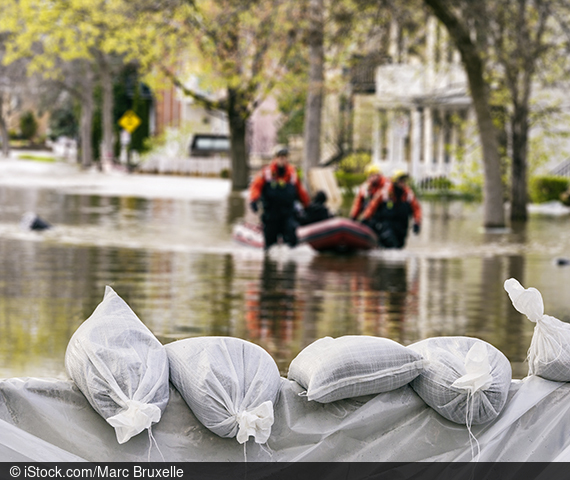Awareness Campaigns Hardly Contribute Towards Flood Protection
ResearchZEW Study examines Awareness Campaigns for Flood Protection
Natural disasters such as floods are becoming increasingly more common as a consequence of climate change. Several federal state governments in Germany have therefore initiated large-scale awareness campaigns in cooperation with the insurance industry. The aim is to make households more aware of this matter so they can cover themselves against damages caused by floods. A study led by Dr. Daniel Osberghaus, researcher in ZEW’s “Environmental and Resource Economics” Department, shows, however, that these campaigns have hardly had an effect on private flood protection or insurance decision-making.
Researchers conducted two independent analyses. First, they investigated whether or not awareness campaigns have an effect on the adoption of coping strategies at household level. Coping strategies are, for example, private safeguards or insurance cover against natural hazards. “The campaigns ultimately show no impact on the way in which households take precautionary measures. They did not take increased private flood precautions or take out insurance cover against natural hazards,” explains Osberghaus. There appeared to be no significant effects even when including other factors such as home ownership, income or risk of flooding.
Long-term impacts on federal state level also fail to materialise
The researchers analysed data from insurers on damages caused by flooding and insurance penetration on federal state level as a further step in their investigation. “The awareness campaigns also displayed no significant impacts on a long-term basis. This shows that these campaigns only have limited effectiveness in Germany concerning actual flood protection and coping strategies taken by households,” concludes the ZEW-economist. As possible alternatives to the awareness campaigns which have thus far had little effect, targeted financial incentive programmes for flood protection of vulnerable households in flood risk areas could come into question, according to Osberghaus.
The research method
The study is composed of two independent empirical analyses. The researchers initially compared data from the federal states of Brandenburg, Rhineland-Palatinate and Saarland with the remaining federal states. To be able to do so, they surveyed over 6,700 households in the years preceding and following the start of the campaign in 2013. A comparison of data on damages caused by flooding and insurance penetration in Germany’s sixteen federal states between 2002 and 2018 took place in the second study.
